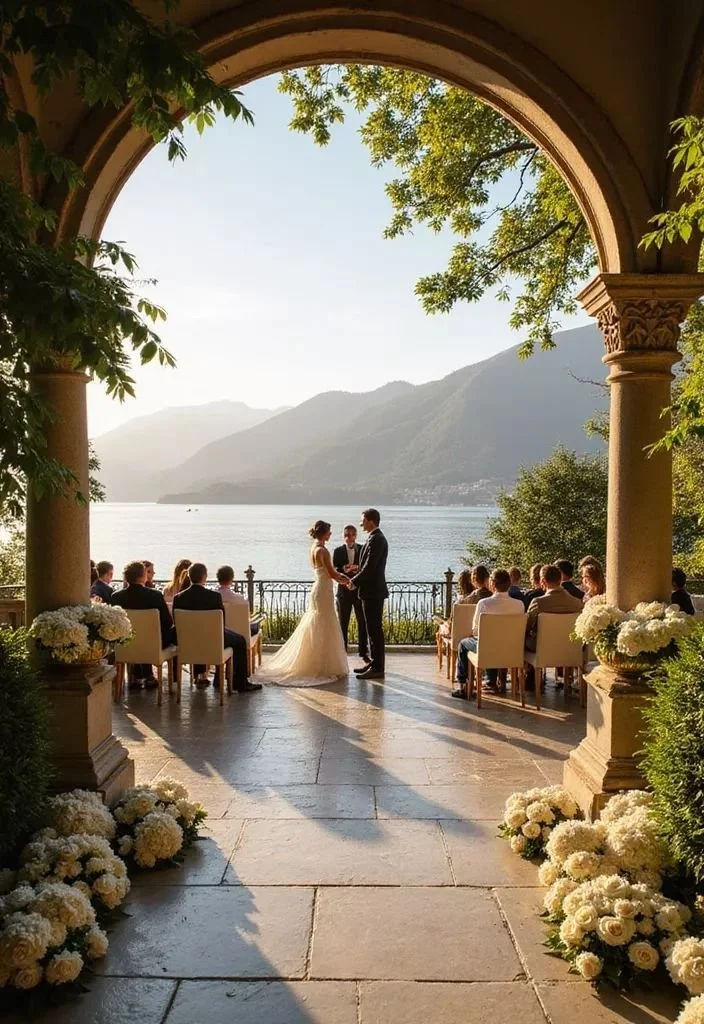Destination Weddings: What To Do Aand What Not To Do
Destination weddings are the epitome of romance and adventure. Whether it’s a sun-drenched ceremony on a tropical beach, a mountaintop vow exchange, or a charming European escape, these weddings offer an unforgettable experience for both the couple and their guests. But let’s be honest — they also come with a unique set of challenges.
Unlike traditional weddings, destination weddings require a lot more coordination, communication, and foresight. From travel logistics to local marriage laws, there’s a long list of things to consider. And while they may seem like the stuff of celebrity dreams, with the right planning, a destination wedding can be both magical and manageable — even on a budget.
So if you’re considering tying the knot far from home, this comprehensive guide will walk you through the essential dos and don’ts of planning a destination wedding. Whether your dream venue is across the country or across the ocean, these tips will help you pull off a celebration that’s as seamless as it is spectacular.
What Exactly Is a Destination Wedding?
A destination wedding is typically defined as a wedding that takes place away from the couple’s hometown — often requiring travel for both the couple and their guests.
While some consider a wedding a “destination” event only if it involves international travel, others believe any ceremony that requires a significant journey (usually two hours or more) qualifies. Ultimately, it’s subjective. If the venue requires guests to book flights or take extended road trips, it’s safe to say you’re planning a destination wedding.
Do: Start Planning As Soon As Possible
Timing is everything when it comes to destination weddings. The earlier you start, the better.
Here’s why early planning matters:
Securing your dream venue before it gets booked
Locking in travel deals and group rates
Giving guests ample time to RSVP and budget
Navigating visa applications and travel documents
Ideally, start planning 12–18 months in advance. This gives everyone — including you — enough time to prepare to attend your wedding without stress.
Do: Consult with Wedding Planners
If your wedding is taking place in a foreign country, hiring a destination wedding planner is a game-changer.
Benefits include:
Overcoming language barriers
Navigating local customs and laws
Coordinating with local vendors
Acting as your on-the-ground support
If a full-service planner is out of budget, consider hiring a local on-site coordinator to assist with logistics.
Create your happily ever after with an Amazon Wedding Registry!
From dream essentials to unforgettable gifts, everything you need to start your new chapter together is just a click away.
Do: Consider a Weekend Wedding
Weekend weddings are ideal for destination events.
They allow guests to:
Arrive on Friday
Celebrate on Saturday
Return home on Sunday
However, keep in mind:
Weekend rates for venues and vendors may be higher
Weekday weddings can be more budget-friendly and less crowded
Choose what works best for your timeline and your guests’ availability.
Do: Note the Season and Local Events
Timing your wedding around local events and seasons is crucial.
Here’s what to consider:
Peak season = higher prices and more crowds
Off-season = lower rates but limited amenities
Shoulder season = best of both worlds
Also, check for local festivals or holidays that may affect availability or pricing.
Do: Decide on the Guest List Early
Destination weddings are typically more intimate, so your guest list should reflect that.
Tips for managing your guest list:
Choose based on who matters most
Consider venue size and accommodation limits
Send save-the-dates 8–12 months in advance
Don’t take it personally if some guests can’t make it
Follow up with guests to confirm attendance and help them with travel arrangements if needed.
Don’t Forget to Check Accommodation Arrangements
Accommodation is a major part of destination wedding planning.
Things to keep in mind:
Reserve room blocks early
Ask about group rates and minimum stay requirements
Consider guests who may stay for extended vacations
Plan for your honeymoon if it’s at the same location
Ensure your guests have options that suit different budgets.
Do: Decide on the Itinerary
A destination wedding often includes multiple events beyond the ceremony.
Popular itinerary additions:
Welcome dinner
Rehearsal dinner
Post-wedding brunch
Group excursions or tours
While not mandatory, these extras enhance the experience and make the trip more memorable for everyone.
Don’t Forget to Insure Your Wedding
Traveling adds risk — and that’s where wedding insurance comes in.
Why it’s important:
Covers cancellations or postponements
Protects against vendor no-shows
Some venues require proof of insurance
Also, be prepared for unexpected costs like baggage fees, transfer charges, or foreign transaction fees. Notify your credit card company in advance to avoid surprises.
Do: Check Local Marriage Requirements
Every country has different legal requirements for marriage.
You may need:
Birth certificates
Medical certificates
Letters of intent
Proof of residency
Start researching early and gather documents well in advance. This avoids last-minute legal issues that could delay or invalidate your ceremony.
Do: Secure Your Passports and Travel Documents
If your wedding is overseas, make sure all your travel documents are in order.
Checklist:
Valid passports (check expiration dates!)
Visas (if required)
Backup IDs like driver’s licenses
Travel insurance
Start the visa application process early to allow time for reapplication if needed.
Don’t Steer Over Budget
It’s easy to overspend when planning a dream wedding in a dream location — but don’t let the fantasy derail your finances.
Tips to stay within budget:
Set a realistic spending limit
Track every expense
Prioritize what matters most
Communicate your budget clearly with your wedding planner
Remember, the goal is to start your marriage on solid financial ground, not in debt.
Takeaways
A destination wedding can be one of the most magical and memorable ways to say “I do.” But it requires thoughtful planning, careful budgeting, and clear communication with everyone involved. From early planning and legal requirements to guest accommodations and cultural nuances, there are many moving parts to manage.
By following these essential dos and don’ts, you’ll be better prepared to navigate the complexities of planning a wedding away from home. Whether you’re exchanging vows on a beach in Bali, a vineyard in Tuscany, or a mountaintop in Colorado, the key is to stay organized, flexible, and focused on what truly matters — celebrating love with the people who mean the most.
So take a deep breath, start early, and enjoy the journey. Your dream destination wedding is closer than you think.
For more helpful resources, visit:
Looking for resources?
At Hello Lovely Living, we aim to empower you to earn and save money and time while benefiting from our expansive network of home, life, wellness, travel, work-from-home, career, and business resources and opportunities. Discover a wealth of tools to support your journey.































